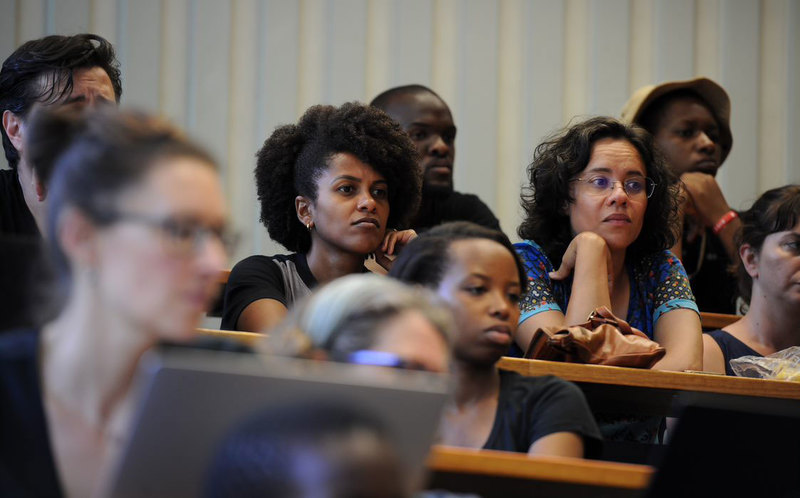10 quotes from Ilze Olckers’s Inclusive Practice talk
21 May 2020 | Story Carla Bernardo. Photo Lerato Maduna. Read time 5 min.
In the second instalment of the Inclusive Practice Speaker Series, renowned human rights lawyer Ilze Olckers discussed “Transformation praxis in higher education: Institutional cultures as living curricula”. The discussion took place online on 5 May 2020.
The series forms part of an ongoing partnership between the University of Cape Town’s (UCT) Office for Inclusivity & Change, School of Education, Global Citizenship Programme, and transformation offices and committees of the Cape Peninsula University of Technology and Stellenbosch University (SU).
This discussion was hosted by SU while the first discussion, featuring Professor Rozena Maart, was hosted by UCT.
The aim of the series is to bring together practitioners, scholars and civil society organisations for the purpose of sharing leading practices that are provoking new ways of doing and thinking about transformation.
During her discussion, Olckers shared learnings and reflections from her work as an independent law, race, gender and organisational development consultant, focusing on transformation issues in South Africa. Most recently, she facilitated a long-term, large-scale transformation process at NMU and shared many of the insights in the Inclusive Practice discussion.
She also shared on a complexity approach to organisational change infused with organisational and epistemological justice, the social technologies that enable optimum conditions for radical systems change, introduced her “liberatory leadership” approach and touched on the pedagogy of accountability.
Following are ten quotes from her discussion, which can be viewed in full online.
- “What we discovered was that the domain of organisations [was] completely neglected when it came to understanding … transformative organisational change.”
- “Sadly to say, in many universities to this day, people are being taught change management from that reductionist scientific management type perspective.”
- “One of the things that I think was particularly powerful with the Nelson Mandela University process that we engaged in, is … this concept of the living curriculum. We worked with this concept that our institutional culture is a living curriculum. And how anybody experiences any aspect or any dimension of life on our campuses or in our classrooms or when encountering fellow members of the … university community, we are enacting and we are performing certain actions there, from which we learn and through which we teach.”
- “There has to be a degree of congruence [and] coherence in terms of how we enact our values as an institution and what our vision is for our institution. There has to be coherence and congruence around that.”
“There has to be a degree of congruence [and] coherence in terms of how we enact our values as an institution.”
- “The liberating leadership approach or framework ... invites leaders to step out of this idea of the kind of solo leader ... in that performative way, and to step into leadership in this facilitative way.”
- “If we are not willing to really work with the idea of accountability, and ... if we don’t have mechanisms in place to keep each other accountable, then we are undermining – profoundly undermining – our other own best efforts at transformative institutional change.”
- “Part of this … pedagogy of accountability is to create an institutional culture where we have the tools, where we know how to have very courageous, robust, difficult conversations around race and around a whole range of other issues and where we are able to do so long before something becomes such an extreme infringement … that we then have to resort to the formal disciplinary processes.”
“The necessity to be able to continue to lead transformative change going into the future is so critical.”
- “The necessity to be able to continue to lead transformative change going into the future is so critical. It’s such a central aspect of any leadership … And the fact that there are still so few … academic courses and … so little inquiry into a critical understanding of organisational development feels like it is a massive gap in our transformation work.”
- “There is an absolutely profound disconnect between the talking about change and the actual enacting and creating change. It is ... such a schism. It is such a profound duality in the ... world of … transformation work.”
- “In terms of organisations as complex adaptive systems, we cannot bring about change … We can only create conditions in which transformative change becomes possible. And it is creating those conditions that becomes our task. And in order to create those conditions within which transformative change becomes possible, we have to be very disruptive, very courageous.
 This work is licensed under a Creative Commons Attribution-NoDerivatives 4.0 International License.
This work is licensed under a Creative Commons Attribution-NoDerivatives 4.0 International License.
Please view the republishing articles page for more information.










